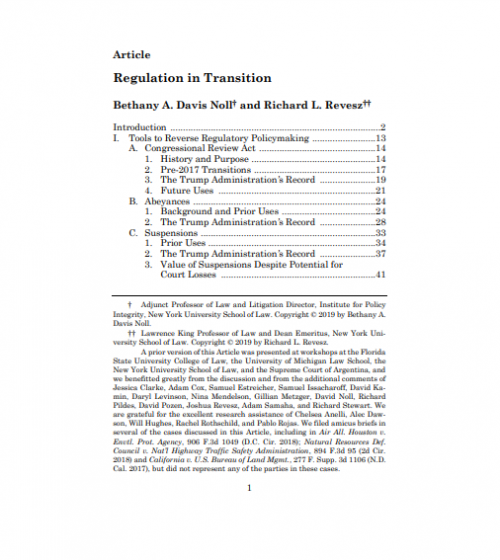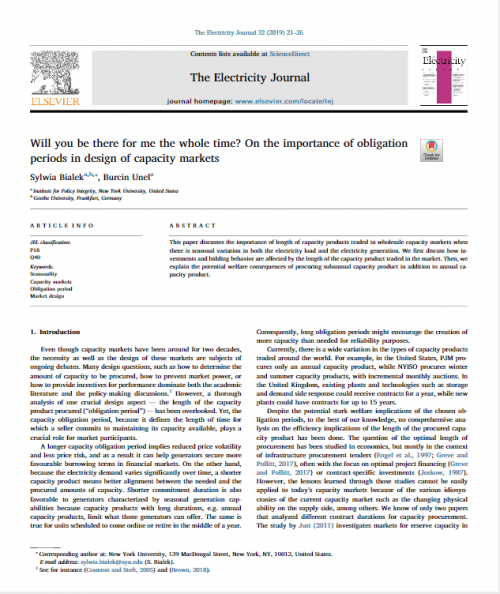The Institute for Policy Integrity produces a variety of publications. Our research reports develop in-depth research on our core issues, while our policy briefs and issue briefs provide focused analysis on more timely or particular topics. Our academic articles and working papers offer original scholarly research and analysis from established experts as well as fresh new voices.
Latest Publications
-
Regulation in Transition
This article, published in the Minnesota Law Review, identifies a new trend in aggressive regulatory rollbacks and argues that it is likely to become an enduring feature of American politics. Rather than stick to the typical deregulatory playbook, President Trump has made aggressive use of other instruments that had not previously played a significant role. Through these strategies, the Trump administration was able to reach a far greater proportion of regulations finalized during Obama’s presidency than would have been possible under prior practices. In the current climate, aggressive rollback strategies will lead to an important reconceptualization of the Executive Branch, in which future one-term presidents are unlikely to see a significant portion of their regulatory output on important matters survive and the incentives that presidents face in fashioning their regulatory policies will be significantly different. The changing incentives will affect a broad set of decisions, from transition planning for an incoming administration to the timing of regulatory actions relative to a president’s reelection campaign.
-
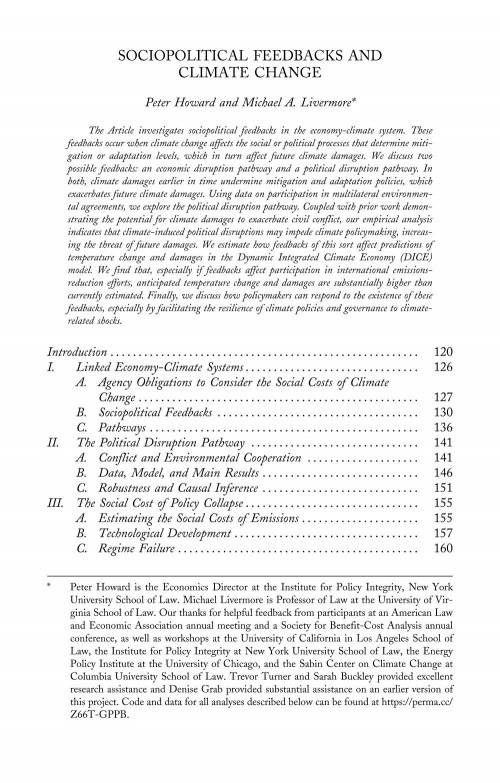
Sociopolitical Feedbacks and Climate Change
This article, published in the Harvard Environmental Law Review, investigates sociopolitical feedbacks in the economy-climate system. These feedbacks occur when climate change affects the social or political processes that determine mitigation or adaptation levels, which in turn affect future climate damages. Two possible feedbacks are an economic disruption pathway and a political disruption pathway. In both, climate damages earlier in time undermine mitigation and adaptation policies, which exacerbates future climate damages. Using data on participation in multilateral environmental agreements, the article explores the political disruption pathway.
-
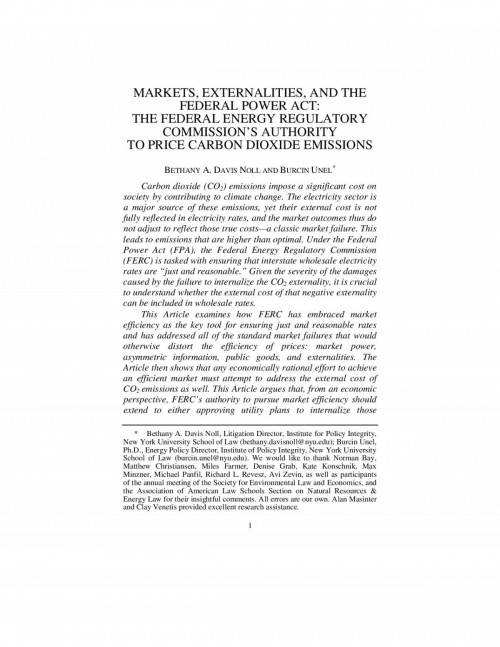
Markets, Externalities, and the Federal Power Act
The Federal Energy Regulatory Commission’s Authority to Price Carbon Dioxide Emissions
This article, published in the New York University Environmental Law Journal, shows how the Federal Energy Regulatory Commission (FERC) must attempt to address the external cost of carbon dioxide (CO2) emissions to achieve an efficient electricity market. CO2 emissions impose a significant cost on society by contributing to climate change. The electricity sector is a major source of these emissions, yet their external cost is not fully reflected in electricity rates, and the market outcomes thus do not adjust to reflect those true costs—a classic market failure. This leads to emissions that are higher than optimal.
-
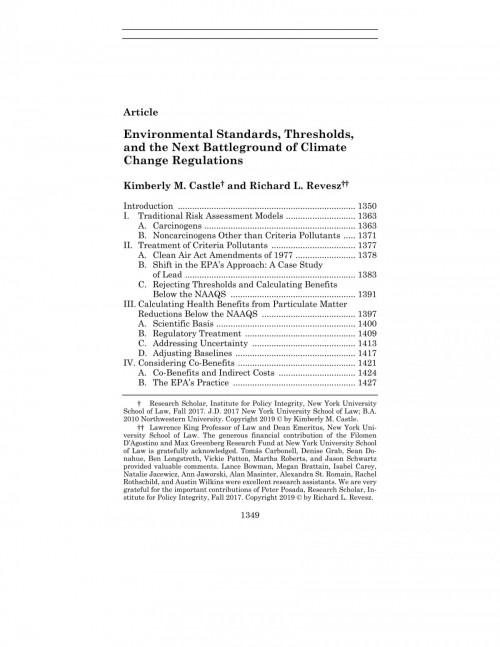
Environmental Standards, Thresholds, and the Next Battleground of Climate Change Regulations
This article, published in the Minnesota Law Review, addresses a central battleground of the debate about the future of greenhouse gas regulations: the valuation of particulate matter reductions that accompany reductions in carbon dioxide emissions. The benefits from particulate matter reductions are substantial for climate change rules, accounting for almost one half of the quantified benefits of the Obama Administration’s Clean Power Plan. These benefits are also significant for regulations of other air pollutants, making this issue one of far-reaching importance for the future of environmental protection.
-
Will You Be There for Me the Whole Time?
On the Importance of Obligation Periods in Design of Capacity Markets
This paper discusses how variations in the availability of various resources (generation seasonality) and the fluctuations in the electricity usage (load seasonality) relate to efficient capacity market design. Even though capacity markets have been around for two decades, the necessity as well as the design of these markets are subjects of ongoing debates. Many design questions, such as how to determine the amount of capacity to be procured, how to prevent market power, or how to provide incentives for performance dominate both the academic literature and the policymaking discussions. Another design aspect that plays a crucial role for market participants is the length of the capacity product procured (“obligation period”), because it defines the length of time for which a seller commits to maintaining its capacity available. However, a thorough analysis of obligation periods has been overlooked by literature and policymaking discussions. Our article works to provide this analysis.

